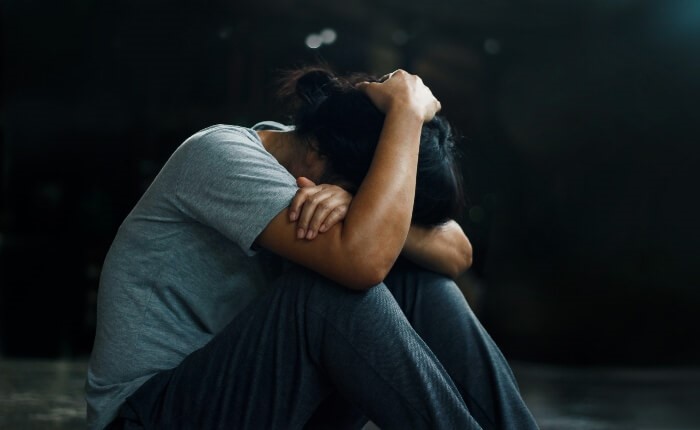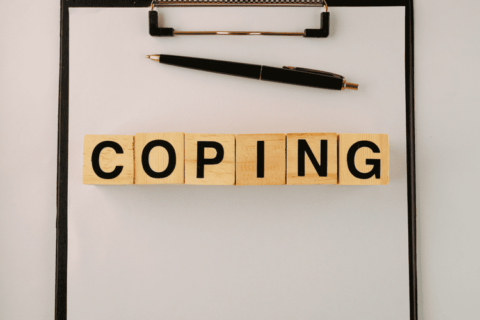9 Self-Help Solutions for Reducing Symptoms of Depression

Are you clinically depressed?
Did you know that about 10 percent of adults in the United States suffer from symptoms of depression? More than a blue mood, depression can upend a person’s life, disrupting relationships and decreasing productivity. If you feel hopeless, helpless, and unable to get out from under negative thoughts that just won’t go away, you might be clinically depressed. Knowing how to reduce depression is not just helpful: it might save your life.
What is depression?
While sadness is a normal reaction to the disappointments of life, clinical depression is much more serious than simple sadness. Some people with depression feel like they’re continually living with a sense of impending doom, while others feel apathetic, lifeless, and empty. Depression takes over a person’s life, interfering with the ability to enjoy things, work, study, eat, and sleep, flooding the person with feelings of worthlessness, helplessness, and hopelessness.
Depression manifests differently in people of different ages and genders and symptoms vary between people, but people with depression generally have a bleak outlook. They lose interest in daily activities, former hobbies, pastimes, and social interaction.
9 Self-Help Solutions for Reducing Symptoms of Depression
Seeking professional help can be extremely beneficial if you’re depressed, but there are also ways to reduce depression on your own. Here, we offer some tips on how to reduce depression and anxiety, including natural ways to reduce depression symptoms without seeing a doctor or taking medication.
- Exercise. Can exercise reduce depression? There are many scientific studies that back up this theory. It is worth a try, certainly, because in addition to boosting your mood, exercise improves your cardiovascular health, aids in weight loss, and reduces your risk of chronic diseases. The problem is, it is hard to want to exercise when you’re depressed. Start small, doing something you like to do, like putting on some music and dancing or taking a short walk. Exercise increases the production of endorphins, the “feel good” brain chemicals, and just a few minutes of exercise a day have been shown to be beneficial.
- Challenge your negative thoughts. If you are depressed, you probably feel that your mind is flooded with negative thoughts. You might find yourself thinking that you’ll always be a failure, people don’t like you, or that the low mood you’re experiencing will never end. These thoughts build on themselves, becoming a habit and reinforcing the depression. Rather than just accepting them, though, you can challenge them with positive thinking. When you find yourself thinking that you’ll always feel this way, think about a time when you felt differently. When you feel that no one likes you, think of someone who does. Challenging your negative thoughts can help drive them from your mind.
- Eat a nutritious diet. Depressed people tend to indulge in unhealthy, sugary, salty, high-fat foods. This can provide a brief feeling of comfort, but ultimately these foods cause weight gain, blood sugar spikes, and bad moods. Instead of comforting yourself with something unhealthy, eat wholesome foods you enjoy, like fresh fruits and vegetables, salmon, and whole grains. Find your favorites and keep them on hand so they’re easy to eat.
- Get plenty of sleep. Depression and anxiety are often accompanied by insomnia, and in turn, a lack of sleep can increase your symptoms of anxiety and depression. Fortunately, making some changes in your bedtime routine can help. Try going to bed at the same time each night, keeping screens out of the bedroom, making your bedroom dark, quiet, and cool, and winding down for a couple of hours before bed. Good sleep helps your mind and body renew themselves, and you might find that getting adequate sleep improves your energy levels and reduces the symptoms of depression.
- Stay hydrated. Water helps keep the body functioning properly, removes toxins, and helps you think more clearly. Avoid soft drinks, caffeinated beverages, and alcohol, in favor of water, and you are likely to notice a change. If you don’t enjoy drinking plain water, consider flavored sparkling water, water with lemon, lime or fresh ginger root, iced or hot herbal teas, or water with a tablespoon or two of fruit juice added to enhance the taste. Shoot for two to three quarts of fluid each day.
- Change your routine. Sometimes, the activities that reduce depression are just activities that shake us out of our everyday rut. Maybe you’re simply getting up every day, going to work, coming home, watching television, and binging unhealthy foods before falling into bed. This would depress anyone! Try some simple changes, like taking a walk before you watch TV or making an effort to eat more healthful food. When you shift your routine, even a little bit, it helps the brain fight depression.
- Establish a routine. On the other hand, some people who are depressed lack structure in their days. If this sounds like you, work on building a healthy routine, with activities like taking a walk, writing in a journal, listening to music, or calling a friend each day. Establishing new habits, just like shaking up your habits, increases dopamine and decreases feelings of depression.
- Find the humor. Did you know that laughter is another way to increase your dopamine and make you feel better? Watching comedy shows, reading jokes, laughing with other people, or even just thinking about something that makes you laugh can help with the symptoms of depression.
- Help someone. It’s easy to be self-absorbed when you’re depressed. Your feelings may seem gargantuan and impossible to overcome, and you may find yourself overwhelmed and dwelling on your problems. Did you know that taking care of another person or a pet can alleviate some of these feelings? Look for ways to help, and you’ll find that your mood is improving. Call a friend, do some volunteer work, help your neighbor, or adopt a shelter pet, and you’ll take your mind off of your problems, boost your self-esteem, improve your positive thinking, and boost your mood.
Brevard Health Alliance Offers Behavioral Health Services
Whether you need a behavioral health specialist, Brevard Health Alliance, Inc. is here for you. Brevard County’s only Federally Qualified Health Center, BHA offers extensive health care services on a sliding-fee scale, so that we can treat residents regardless of their ability to pay. We’re committed to providing an extraordinary quality of care for our patients in order to improve the health status of Brevard County. Our focus is on continually improving the quality and efficiency of our care, and on ensuring that every patient we serve is heard, encouraged, and respected. As your family health care provider, we strive to provide not just acute care but also preventive care and health care related education. Our board certified physicians, advanced practice nurse practitioners, and physician assistance provide primary care that includes well child checkups, well woman care, and physicals, along with chronic disease management. In fact, since 2005 we’ve provided not only primary care services, but also behavioral health services, dental services, diagnostic services, resource management services, pharmacy services, women’s health care and obstetrics, Hepatitis C and HIV services, extended hours pediatric walk-in care, and specialty referrals. For more information, to find a location, or to make an appointment, contact us through our website.
















































































































































